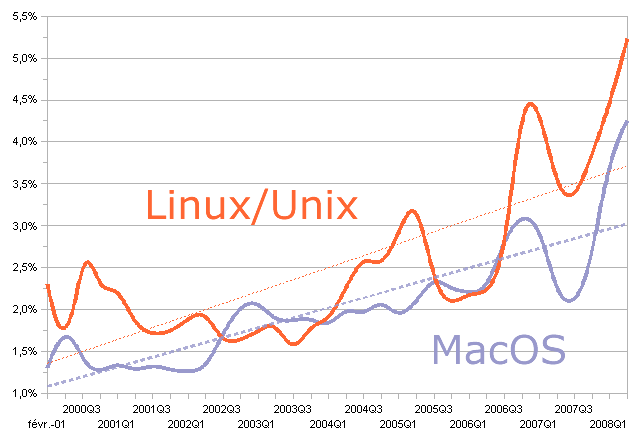When Dropbox ignores files to sync on Linux...
Much like many Drupal devs, I happen to make fairly intensive use of Dropbox, and even use a "pro50" account to sync my always increasing set of "current" source folders, including checkouts of all major Drupal versions and lots of contrib.
Which means that, beyond the number of gigabytes of data Dropbox has to sync, the number of the files making up these gigabytes has also been increasing, currently to around 100k files. After I started playing with checkouts of the Drupy project in preparation for the Drupyx experiment, I noticed that, when I created some new files under the Drupy directories, their creations and subsequent changes would not be tracked by Dropbox, but they would correctly sync if I renamed the Drupy directory itself or a directory above it. Something like this:
| Action | Result on Dropbox.com |
|---|---|
| touch ~/Dropbox/src/drupy/src/foo.py | Ignored |
| mv ~/Dropbox/src/drupy/src/foo.py ~/Dropbox/src/drupy/src/bar.py | Ignored |
| mv ~/Dropbox/src/drupy ~/Dropbox/src/drupa | Full sync below ~/Dropbox/src/drupa |
| mv ~/Dropbox/src/drupa ~/Dropbox/src/drupy | Full sync below ~/Dropbox/src/drupy, including "foo.py" |
| rm ~/Dropbox/src/drupy/foo.py | Ignored |
And all this while operations on a PC running Windows tied to the same account did not experience any similar problem. What could be going wrong ?

